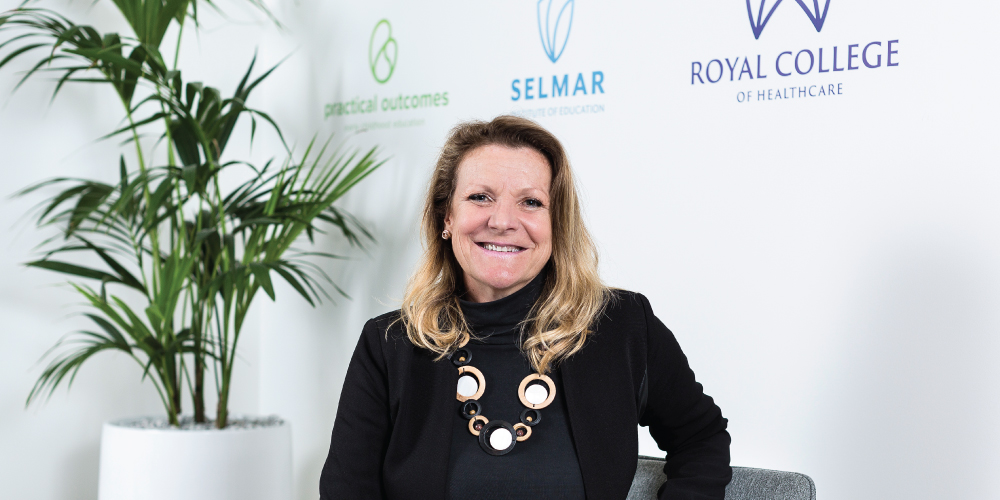Catalyst for better aged – and child – care
By Leon Gettler >>
AGED CARE and early childhood care are two of the booming sectors of the economy where there will be a lot of jobs.
Catalyst Education is now putting a lot of focus on training workers for those sectors but, according to Catalyst CEO Jo Asquith, there’s a lot of work that still has to be done.
Ms Asquith told Talking Business the findings of the Royal Commission showed that the aged care sector was “crying out for a skilled workforce” and that one of the criticisms of the commission was there had not been enough planning in the capacity to have enough people on the ground to look after residents in aged care facilities or in home care.
Catalyst Education was focused on training that workforce so that they could “hit the ground running”. 
Ms Asquith said the recent Federal Budget reflected the government’s commitment to create greater numbers of skilled workers into that area and in early childhood as well.
CATALYST FOR CHANGE
Catalyst Education is the parent company, with Selmar Education, Practical Outcomes and the Royal College of Healthcare in Queensland, and all the training is delivered through the registered training organisations.
There are 80 trainers and they all come from the sector. They might even have been directors of aged care centres and childcare centres in the past.
The childcare sector is a larger part of the Catalyst operation
About half the learners are already in the workforce, whether it is through an early childcare centre or in an aged care centre, most seeking to upskill to progress their careers and earn more money. The other half are unemployed or school leavers or mature age students wanting to get into the sector.
DEVELOPING ADAPTIVE SKILLS
Ms Asquith said the adaptive skills of care and compassion were key to their development. In the aged care sector, they are looking at every resident having 200 minutes of one-on-one care per day.
That 200 minutes a day covered personal care in areas like showering, moving residents from place to place and also bringing about connections with other residents and people in home care.
“That’s absolutely critical because it’s all about human centred education and it’s putting that clientele at the centre of everything we do,” Ms Asquith said.
“So there’s the technical skills which are absolutely critical, everybody has to come out with a suite of technical skills, but we’re really looking for people who are passionate about the sectors in which we deliver our programs, that have care and compassion and also how we develop that through the course of our training package, and that’s what the sector is crying out for.”
Ms Asquith said those “adaptive skills” spanned all sectors that Catalyst was now working in.
She said the 200 minutes per day per resident requirement highlighted the gap in the workforce strength that is currently a problem in the aged care sector.
“For me, one of the amazing things is we are working with two very vulnerable populations, the very youngest of our society and the very oldest of our society and going back to those adaptive skills, they are absolutely required across the sectors that we work in so it’s a really exciting space to be in,” Ms Asquith said.
Hear the complete interview and catch up with other topical business news on Leon Gettler’s Talking Business podcast, released every Friday at www.acast.com/talkingbusiness.
ends

 How to resolve AdBlock issue?
How to resolve AdBlock issue? 